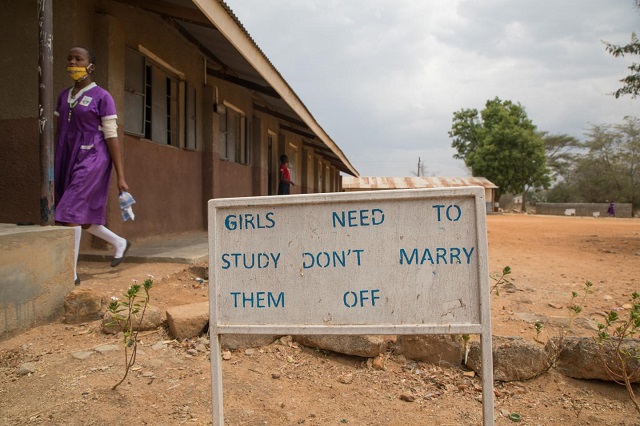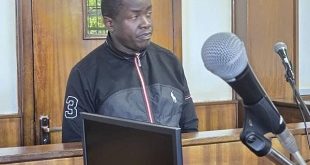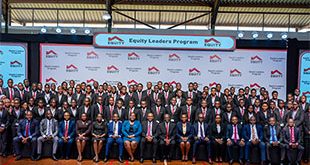
Kampala, Uganda | THE INDEPENDENT | David Pulkol, the Executive Director of the Africa Leadership Institute, and a researcher, is advocating for a shift in government funding policies for schools, particularly in regions such as Karamoja that have faced developmental challenges.
Currently, the government allocates financial assistance to schools mainly through capitation grants, with the funding determined by the number of learners enrolled. At the primary level, the government allocates sh17,000 per learner and sh56,000 per student under the Universal Secondary Education (USE) program.
These grants are designed to support various aspects of the educational process, including the acquisition of educational materials, facilitation of extracurricular activities, school management, and the provision of utilities such as electricity and water.
Pulkol, the former director general of the External Security Organisation (ESO), emphasizes that the current enrollment-based funding approach is inadequate for addressing the specific needs of some areas like Karamoja. He proposes a more effective strategy based on the disparity between the national indicators and the existing local indicators.
Pulkol put forth the recommendation while leading a delegation from the Karamoja Professional Association (KAPA) to the Education Policy Review Commission, currently engaged in formulating a new blueprint for education in Uganda.
Notably, Pulkol provided policy guidance to the commission chaired by Amanya Mushega. Both Pulkol and Mushega have served as education ministers, with Mushega holding a senior position compared to Pulkol during the period of the Kajubi report, which ultimately contributed to the formulation of the 1992 Education White Paper.
In their memorandum, the Karamoja Professional Association emphasized the necessity of implementing compulsory and free education at both the primary and secondary levels—a recommendation echoed by various groups engaging with the commission.
However, Pulkol added a specific contextual nuance for Karamoja, emphasizing that the term “free” should be upheld in its literal sense.
In the Karamoja context, he proposed that the government should establish boarding schools, ensuring that everything from school materials to bedding and food is provided. This comprehensive support, Pulkol argued, is essential to attract more learners to schools in the Karamoja region.
Having boarding schools in Karamoja is not a new idea. it was also fronted by the Kajubi Commission, as a special measure to enroll children from nomadic backgrounds, thereby reducing the dropout rate. Since 1992 when the education white paper was approved, the government has not fully implemented the proposal, but there have been sporadic initiatives with similar concepts in the area.
These projects, by the government, NGO, and church, have attempted to address the educational challenges faced by the Karamojong community. Meanwhile, the association also called for a special education focus in their areas saying that they have lagged behind for years and an affirmative action of sorts as far as education is concerned is the only equalizer the sub-region can get.
Available statistics highlight the education crisis in Karamoja, with over 70 percent of the population aged 10 and above having never attended school. Currently, only 0.9 percent of children aged 6-12 years are enrolled in primary school. In terms of completion, a mere 3.5 percent of children who begin P1 in Karamoja manage to complete primary seven. These completion rates are notably lower than those in Central, where the completion rate stands at 40 percent.
Karamoja Professional Association advocated for a targeted education initiative in their areas, underscoring the prolonged period of lagging behind. They emphasized that a form of affirmative action, specifically tailored to address the educational disparities in their sub-region, is imperative.
According to the association, such focused attention is seen as the only means by which their sub-region can attain a level playing field in the realm of education. Lt. Gen. (Rtd) James Nakibus Lakara who is also part of the group advised that providing education to children in the area can not only address the education challenge but also serve as a partial solution to the security issues in the sub-region.
Lt. Gen. (Rtd) Lakara observed that in the past, communities in the region had rejected education, associating it with colonization, and even symbolically buried the pen. However, he highlighted a significant shift in recent times where communities conducted rituals to unearth the pen.
According to him, this symbolic act indicates a change in attitude, suggesting that the communities are now more open and receptive to embracing education in the sub-region.
Among other recommendations, the association proposed the reinstatement of State House scholarships to support a minimum of 100 students annually. Additionally, they advocated for the establishment of skills development centers and the creation of a university in Karamoja, among other suggestions.
At the end of the presentation, Amanya Mushega appealed to the association to provide additional recommendations regarding the curriculum, contemplating the possibility of designing a curriculum specifically tailored to address the unique needs of the sub-region.
The National Planning Authority has already proposed a context-sensitive approach curriculum. For instance, they say that if an area is renowned for cattle keeping, the primary curriculum should reflect this to enhance learners’ engagement with the subjects.
During the presentation, professionals from Karamoja underscored the importance of adapting the education system to honor and integrate pastoralist culture, traditions, and the agro-pastoral lifestyle. They also proposed the establishment of mobile schools or flexible learning centers capable of moving with pastoralist communities.
In line with this, the association called on the government to reassess and revitalize the Alternative Basic Education for Karamoja (ABEK), stating that this model had effectively achieved its objectives by providing basic education to children from pastoral communities whose lifestyle impedes their attendance at formal primary schools.
Other members of the commission also pressed the association to undertake research and offer recommendations on various aspects, including the challenge of teacher availability and parental involvement in education, among other pertinent issues.
*****
URN
 The Independent Uganda: You get the Truth we Pay the Price
The Independent Uganda: You get the Truth we Pay the Price




The Government should provide free lunch under UPE and USE schools.